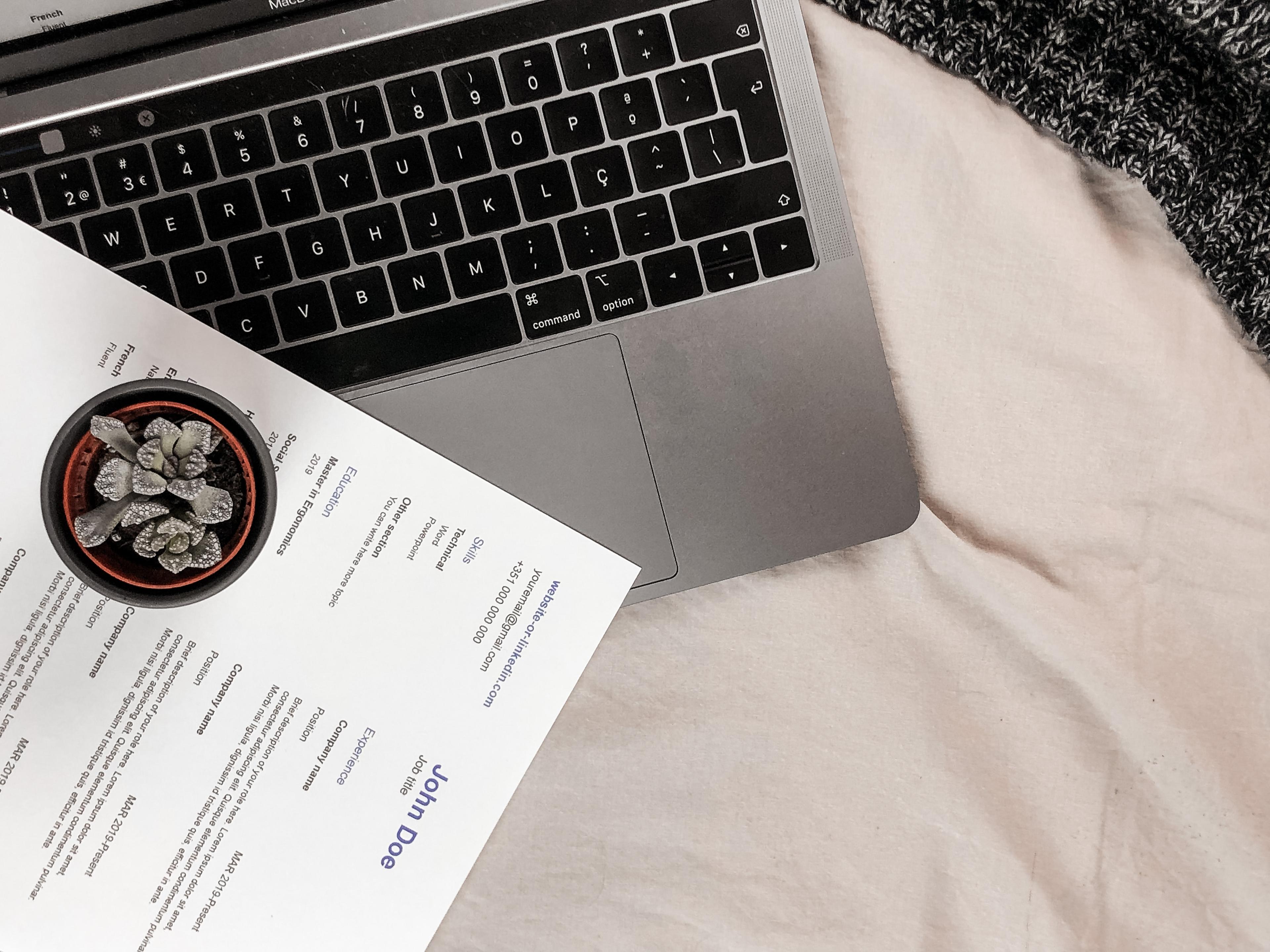Uncommon Investment Banking Interview Questions: How to Prepare
Are you preparing for an investment banking interview? Don't miss out on this article that covers uncommon investment banking interview questions and how to prepare for them.
Posted April 10, 2025

Table of Contents
If you're preparing for an investment banking interview, you probably already know that the process can be challenging. However, it's important to be aware that not all interviews are the same. You may encounter uncommon interview questions that can throw you off balance if you're not prepared.
Why Investment Banking Interviews Can Be Challenging
Investment banking interviews are known for being rigorous and competitive. Typically, you'll have to complete several rounds of interviews before you're offered a position. During these interviews, you'll be asked a range of questions designed to assess your technical knowledge, communication skills, problem-solving abilities, and cultural fit with the company.
Moreover, the interviewers are often seasoned professionals who have extensive experience in the industry. They'll be looking for candidates who can demonstrate that they have what it takes to succeed in the fast-paced world of investment banking.
One of the biggest challenges of investment banking interviews is the level of preparation required. Candidates are expected to have a deep understanding of financial markets, accounting principles, and valuation techniques. They must also be able to articulate their thoughts clearly and concisely, often under pressure. This requires a significant amount of research, practice, and self-reflection.
The Importance of Researching the Company and Industry
One of the best ways to prepare for an investment banking interview is to research the company and the industry. By doing so, you'll not only gain a better understanding of what the firm does, but you'll also show the interviewer that you're serious about the opportunity.
Research can include studying the company's financial statements, familiarizing yourself with its recent deals and trends in the industry, and learning about its culture and values. This information can help you tailor your answers to the interview questions and demonstrate that you have a genuine interest in the firm
Moreover, researching the company and industry can also help you identify potential challenges and opportunities that the firm may face in the future. This can give you an edge during the interview process, as you can demonstrate your ability to think critically and provide valuable insights to the firm.
Behavioral Interview Questions You May Encounter
Behavioral interview questions are commonly asked during investment banking interviews. These are questions designed to assess how you've handled specific situations in the past, and they can give the interviewer insight into your personality, work ethic, and values.
For example, you may be asked questions like "Tell me about a time when you had to work under a tight deadline" or "Describe a situation where you had to adapt quickly to a new team." The key to answering these types of questions is to provide concrete examples of how you handled the situation, and what you learned from the experience.
Another common behavioral interview question is "Tell me about a time when you had to deal with a difficult coworker or client." This question is designed to assess your interpersonal skills and how you handle conflict in the workplace. It's important to provide a specific example and explain how you approached the situation, what actions you took, and what the outcome was.
Additionally, you may be asked questions about your leadership abilities, such as "Tell me about a time when you had to lead a team to achieve a specific goal." This question is designed to assess your ability to motivate and guide others towards a common objective. It's important to provide a clear example of how you demonstrated leadership skills, what challenges you faced, and how you overcame them.
Technical Interview Questions to Expect
Investment banking interviews often include technical questions that test your financial knowledge. These can range from simple arithmetic problems to complex financial modeling scenarios.
To prepare for these questions, it's important to review basic finance and accounting concepts. You may want to practice financial modeling with excel or work through practice tests. Reviewing industry trends and latest developments can also help you stand out and demonstrate your knowledge.
Additionally, it's important to be familiar with the specific financial products and services offered by the investment bank you are interviewing with. This can include knowledge of different types of securities, such as stocks and bonds, as well as understanding the bank's role in mergers and acquisitions. Doing research on the bank's recent deals and transactions can also give you valuable insights and help you prepare for potential questions.
Unconventional Interview Questions That May Come Up
Investment banking interviews can sometimes include unconventional questions that test your creativity and problem-solving abilities. These may include questions like "If you could have dinner with any historical figure, who would it be and why?" or "If you had to sell a pen, how would you do it?"
The key to answering these questions is to think outside the box and be creative. Don't be afraid to take risks and present original ideas or solutions.
Another type of unconventional interview question that may come up in investment banking interviews is a brain teaser. These questions are designed to test your analytical and critical thinking skills. For example, you may be asked "How many golf balls can fit in a school bus?" or "How many gas stations are there in the United States?"
When answering brain teasers, it's important to show your thought process and explain how you arrived at your answer. Don't be afraid to ask clarifying questions or make assumptions if necessary.
How to Demonstrate Your Problem-Solving Skills
During an investment banking interview, you'll need to demonstrate your problem-solving skills. This may involve analyzing complex situations and using critical thinking to develop effective solutions.
To showcase your problem-solving abilities, it's important to be clear, concise, and logical in your answers. You may want to use examples from your past experiences where you tackled tough projects or dealt with difficult situations effectively.
Additionally, it's important to communicate your problem-solving process. This means breaking down the steps you took to arrive at a solution and explaining why you chose that particular approach. This not only demonstrates your critical thinking skills but also shows that you can effectively communicate your thought process to others.
Tips for Answering Brain Teaser Questions
Brain teaser questions can be tricky and intimidating, but they can also be a great way to show your analytical and creative thinking skills. When answering these questions, take a deep breath and give yourself time to think before responding.
It can be helpful to break the question down into smaller parts and try to solve it step-by-step. If you get stuck, don't panic: take a moment to gather your thoughts and consider alternative approaches. By showing confidence and composure in your answer, you'll impress the interviewer.
Another useful strategy is to ask clarifying questions if you're unsure about any part of the brain teaser. This can help you better understand the problem and identify any hidden information that may be relevant to the solution.
Additionally, don't be afraid to think outside the box and come up with creative solutions. Brain teasers are designed to test your ability to think creatively and find unique solutions to problems. So, don't be afraid to take risks and try something unconventional.
Common Mistakes to Avoid During an Investment Banking Interview
During investment banking interviews, there are several common mistakes that candidates make that can hurt their chances of getting the job. Some of these include failing to research the company, being unprepared for the interview questions, or dressing inappropriately.
It's important to remember that you're being evaluated not only on your technical abilities, but also on your professional demeanor and fit with the company culture. Make sure you're presenting yourself in the best possible light by dressing professionally, doing your research, and practicing your interview skills.
Another common mistake that candidates make during investment banking interviews is not being able to articulate their past experiences and accomplishments effectively. It's important to be able to clearly communicate your skills and achievements, and how they relate to the position you're applying for. Practice answering common interview questions and be prepared to provide specific examples of your work.
Additionally, candidates often forget to follow up after the interview. Sending a thank-you email or note to the interviewer can help you stand out and show your continued interest in the position. It's also a good opportunity to address any questions or concerns that may have come up during the interview.
The Role of Body Language in a Successful Interview
During an investment banking interview, your body language can have a significant impact on how you're perceived by the interviewer. Nonverbal cues such as eye contact, posture, and gestures can signal confidence, engagement, and interest.
It can be helpful to practice your body language before the interview, such as maintaining good posture while sitting or standing, and making eye contact while speaking. By being aware of your body language, you can convey a positive and professional image to the interviewer.
Strategies for Navigating Group Interviews
Group interviews are becoming increasingly common in the investment banking industry. These are interviews in which you'll be interviewed by two or more individuals at the same time.
These interviews can be challenging, as you'll need to demonstrate your ability to work effectively in a team while also standing out as an individual. Some strategies to keep in mind include maintaining eye contact with all members of the group, actively engaging with all interviewers, and being respectful and courteous to everyone in the room.
How to Follow Up After an Investment Banking Interview
After an interview, it's important to send a thank-you note to the interviewer or interviewers. You might also want to include a couple lines on anything you learnt in the interview, that might showcase your interest and understanding of the company.
Preparing for Second-Round Interviews
If you've made it to the second round of interviews, congratulations are in order! Typically, the second round will involve more in-depth discussions around technical knowledge, and cultural fit.
It can be helpful to review the notes you took after the first interview and to practice your responses to potential follow-up questions. Don’t forget, second-round interviews are also an opportunity for you to learn more about the firm and the culture to make an informed decision yourself.
Resources for Practicing Investment Banking Interview Questions
A variety of resources exist online to help you prepare for investment banking interviews, including forums and practice banks. Many of these resources offer sample questions and answers, as well as tips on how to succeed in the interview process.
It can be particularly useful to practice mock interviews with colleagues or friends, they can provide insightful feedback on technical and communication skills.
Conclusion: Keys to Success in Investment Banking Interviews
Investment banking interviews can be challenging, but they also provide an opportunity to demonstrate your skills, knowledge, and passion for the industry. By spending time preparing for uncommon interview questions, researching the company and industry, and honing your interview skills, you can increase your chances of success. Remember, staying true to yourself, staying calm, and showing your willingness to learn can go a long way in impressing your interviewers.












